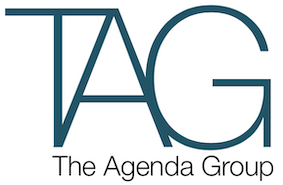On 16 July 1992, then Premier of Victoria, Joan Kirner, placed 20c into a poker machine in the Whitten Oval premises of the Footscray Football Club. She lost. That was the first day of operations for poker machines in Victoria and ever since there has been a variety of losers and winners. But how did it come to this?
Six years earlier, in August 1986, the then Victorian Commissioner for Corporate Affairs was seriously considering whether to allow seven of the then eleven Victorian-based VFL clubs to continue to operate.
He wrote to both the VFL and the Government indicating that as the matter then stood he was not convinced that the clubs concerned would be able to meet their commitments if called upon by their creditors, nor was he satisfied that the VFL clubs or the VFL itself were taking appropriate actions to correct what he perceived as the apparent insolvency of the clubs themselves. He required the VFL and the clubs concerned to indicate what they proposed to do to remedy the situation and if he remained unsatisfied he proposed to carry out his statutory obligations.
The VFL in those days was run by the late Jack Hamilton and the level of interaction with government was often through a demand in the Sun-News Pictorial in the morning (for example, seeking government approval to play VFL football on Sundays in competition with the VFA) and the government would respond, usually in the negative, in The Herald in the afternoon.
In 1986 the Government of John Cain was forced, by the situation brought to their attention by the Commissioner for Corporate Affairs, to make some decisions which they clearly found unpalatable.
John Cain did not support expansion of the VFL nationally but the plan to save the VFL clubs required it. As we now know, in 1987 two teams, the West Coast Eagles and Brisbane Bears, were established and joined the VFL (subsequently to be renamed the AFL).
This decision gave the eleven Victorian VFL clubs some breathing space and satisfied the
Commissioner for Corporate Affairs.
But it seemed the costs of VFL/AFL football as it continued to become more professional could not be met solely by expansion as seen by the merger of the Fitzroy Football Club with the Brisbane Bears and other merger plans subsequently aborted. Alternative revenue streams were still necessary.
The Parliament of Victoria passed enabling legislation which allowed poker machines in 1991. By Ministerial direction, half the machines were allocated to clubs and accordingly VFL clubs took up the opportunity. All Victoria-based VFL (now AFL) clubs have at some time been the beneficiaries of poker machine revenue, although the North Melbourne Football Club currently is the only club without at least one poker machine venue.
The unanswerable questions are these: Would Victoria still have the Geelong, Collingwood, Melbourne, Footscray, Richmond and North Melbourne Football Clubs if poker machines had not been introduced 20 years ago? And, if not, would Victoria be a better place both without poker machines and those clubs or would we, as a society, rather have poker machines and all those clubs?
Of course, if poker machines had never been introduced it is possible some or all of those clubs might still have survived. But in the late 1980s and early 1990s the risk of VFL collapse was much greater than people seem to remember.
Footnote: While I was CEO and Executive Commissioner of the Victorian Commission for Gambling Regulation from 2002 to 2010, in 1986 I was a policy officer at the then Department of Sport and Recreation working with the VFL to help solve its dilemma. Ironically, the Commissioner for Corporate Affairs in 1986 was Gordon Lewis later to become Judge Lewis and subsequently a Deputy Chairman and Commissioner of the Victorian Commission for Gambling Regulation.
